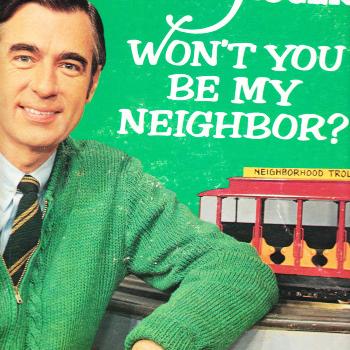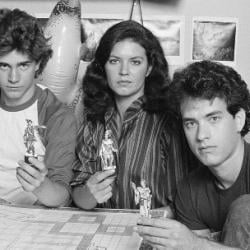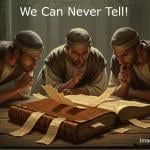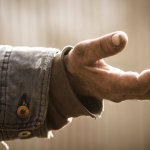Robert Novak was not pleased with President Bush's performance Sunday on Meet the Press.
Novak seems to think it was unthinkable for Bush's handlers to allow him to face the mighty Tim Russert —
"All week long in the capital, worried Republicans buzzed about George W. Bush's Sunday interview … "
"Supporters of the president were surprised that he would ask to be questioned by Tim Russert."
"How could Bush be put out to confront the most feared questioner in Washington … ? How could he face Russert …?"
"… no aide dissuaded Bush from embarking on this course …"
Bob, relax, it's just an interview show. It's not certain doom. You go on, you answer a few questions. People do it all the time. It's no big deal — no cause for worries and night-sweats unless, of course, you're convinced that your guy is incapable of a simple, honest, straightforward discussion of his principles and positions. You still seem worried …
"No president ever before had been subjected to such tough questioning in the Oval Office," Novak writes.
This reminds me of President Kennedy's toast to the gathering of Nobel laureates he assembled in 1962: "I think this is the most extraordinary collection of talent, of human knowledge, that has ever been gathered together at the White House, with the possible exception of when Thomas Jefferson dined alone."
When Jefferson was alone in the office of the president, he regularly subjected himself to far tougher questioning than anything Russert lobbed at Bush on Sunday. The same could be said for many, if not most, of the men who have taken on that great responsibility — Lincoln, the Roosevelts, Truman, Kennedy, Nixon, Carter, even Clinton (whose mind, of course, occasionally wandered).
But I don't think the same could be said for George W. Bush. Slate's William Saletan writes of "Bush's difficult relationship with reality and describes it as strangely Platonic — a realm of the ideal unhindered by annoying facts:
He doesn't change his mind for anything, whether it's polls or facts. And he always tells the truth about what's in his mind, whether or not what's in his mind corresponds to what's in the visible world.
By describing this as Bush's "Platonic presidency," Saletan oddly agrees with Peggy Noonan, who said that Bush's problem is he is "too philosophical." But I don't think that's really the problem.
The problem seems to be that when President Bush dines alone he is never subjected to tough questioning.
"The Bush White House is cloistered, where even Bush aides seem restrained from debating strategy even behind closed doors," Novak writes, and that cloistering is the reflection of its leader — a man restrained even from debating himself.
"There was no doubt in my mind," Bush likes to say. On that point, at least, he is telling the truth.












